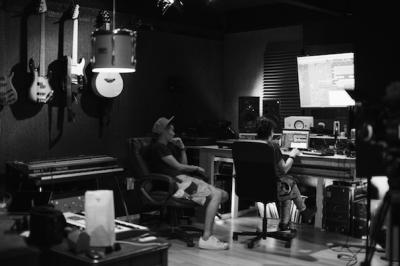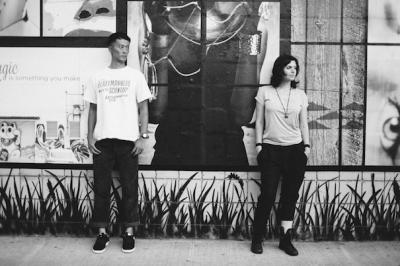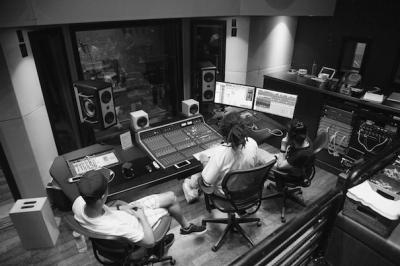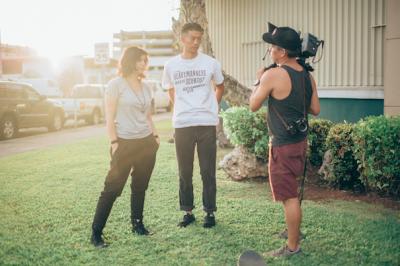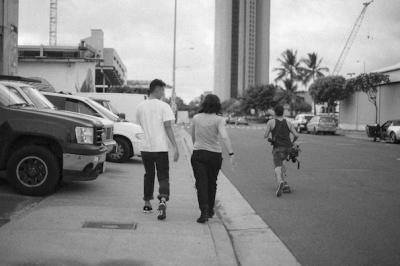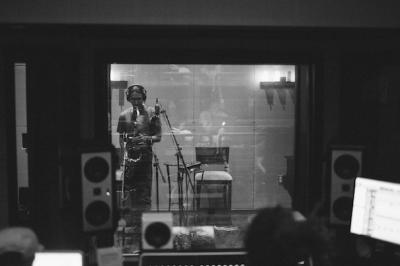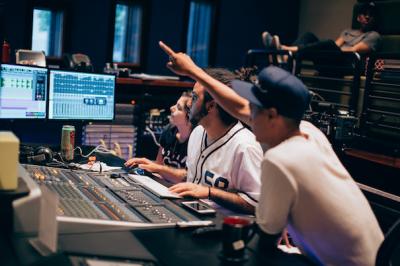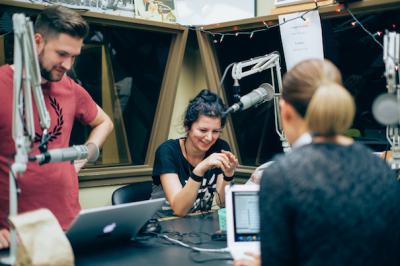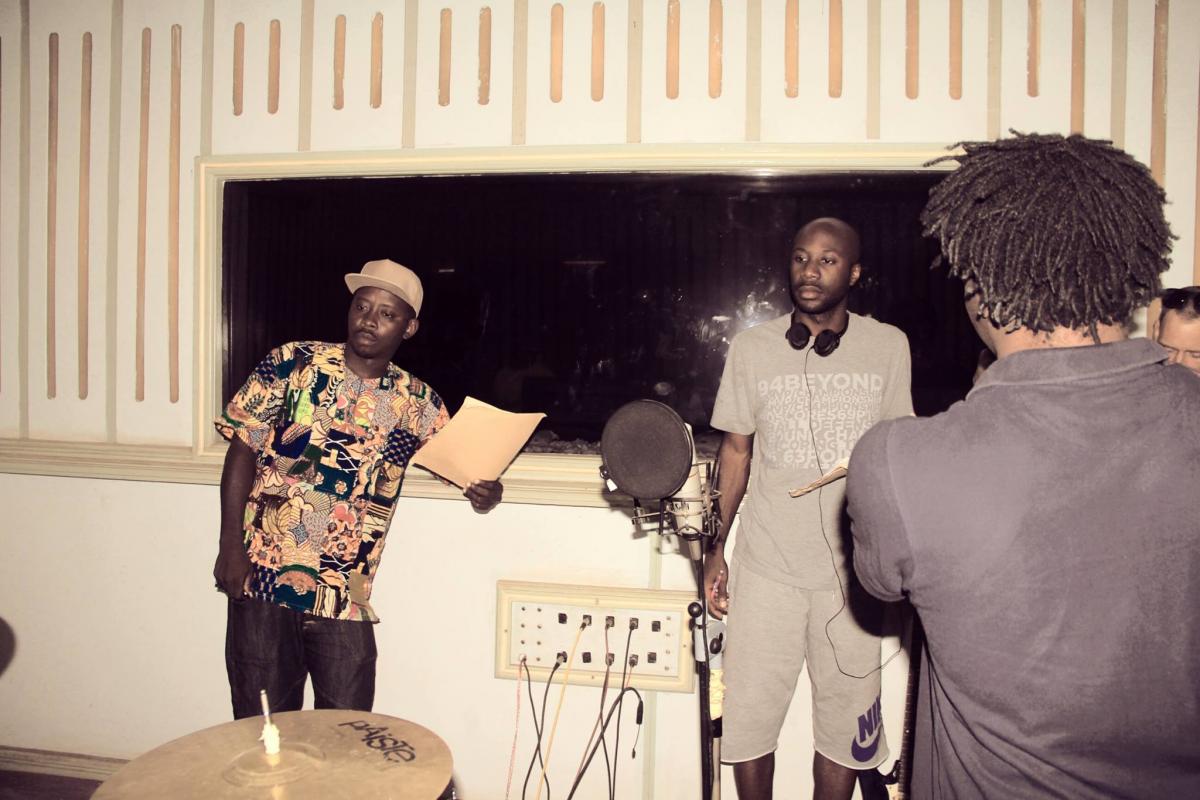
Browse the Past to Build the Future
Inspired by panafricanist thought, Togolese rapper Yao Bobby browses the past to build the future in a country that is misruled by the same family since almost 50 years. In and beyond Togo, other rapping companions follow a similar approach, embedded in a regional network of activists. Yao Bobby collaborated on the first season of 1+1, a worldwide recording project by Norient and Sound Development in Summer 2015. For more material (tracks, videos, articles, photos) on 1+1 check the project website here.
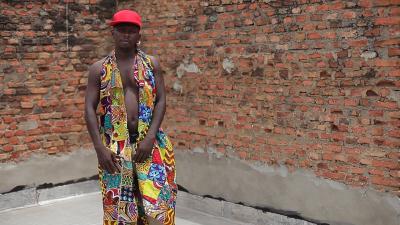
There is a certain tendency of politics to develop into a family affair. Two or more generations of the same family were holding the most powerful political post in the USA (the Bush’s), in Greece (the Papandreou’s), in India (the Nehru-Gandhi family), in Mauritius (the Ramgoolam’s) or in Syria (the al-Assad’s), to name just a few examples. The list becomes even longer and more worrying when siblings (e.g. the Castro’s) or couples (e.g. the Kirchner’s) are included - not the mention family appointments on ministerial or adviser posts… In the West African country Bénin, Léhady Soglo, Modeste Kérékou and Chabi Yayi competed for a parliamentary seat in the same elections. These are sons of all three presidents the country had since the introduction of multi party elections in 1991. The icing on this already very intriguing cake was that the wife of a former and the Brother-in-Law of the then president also competed the elections. Family affairs indeed.
Among the most extreme examples is neighbouring Togo, where executive power is within the same family since almost 50 years. The founder of the political dynasty, Gnassingbé Etienne Eyadéma, incarnates the stereotypical dictator: He came to power in 1967 by a military coup d’état, then put on a democratic figleaf that could hardly blanket the excessive violence of his regime that was topped with a massive personality cult. He enjoyed the backing of France and was close to Jean-Christophe «Papa-told-me» Mitterand. Two of Eyadéma’s own «Papa-told-mes» held posts as officer in the army (Rock) and minister for Public Works, Mines, Posts and Telecommunication (Faure). In a move to prepare his succession, Gnassingbé Eyadéma changed the constitution to lower the minimum age for the president. After his death in 2005, the army unconstitutionally declared his son Faure Eyadéma new president. Sham elections were organised and hundreds were killed during protests that displaced tens of thousands.
Just before this happened, Togolese rapper Yao Bobby was warned by phone to leave the country as he was among the targets of the military. This was not his first exile. On the track «Camp de réfugiés», he describes his experiences when leaving the country in the early 1990s, when a wave of pro-democracy protests was suppressed by the military and scores of protesters were found dead in the lagoon. In this context, he started to write lyrics and founded the rap group Djanta Kan. Their outspokenness made them a target in 2005 again. With the stick came the carrot: Eyadéma junior invited them to support his electoral campaign, but he couldn’t tempt them. When talking with him in 2008, Yao Bobby recounted his unease staying in Togo. He also described life in Togo as quite dire. Since then there was hardly any change, to the contrary. A small elite got rich and richer while an estimated 80% of the population is poor or vulnerable to poverty. The quality of health care, education and other government services decreased. Different attempts of popular protest were combatted with arbitrarily violence. Even the Minister of Defence felt the fear of the new president and was put in jail in 2009. His name was Kpatcha Gnassingbé, another brother of the president.
In such contexts, there is frequently a boom of music about love and amusement. Togo is no exception to the rule. Coupé Décalé, a genre that emerged in Paris and nearby Côte d’Ivoire, is also popular in Togo. While some rappers jumped on this bandwagon, others still rap. However, Yao Bobby is among the few who continue to address political issues. Broadly speaking there are two variants of rap music. The more common contemporary variant uses computer-produced bass and percussion as beats over which rappers rhyme, accompanied by rather sparsely used melodic elements. Some recent productions of this variant are increasingly inspired by contemporary developments in American and European rap music and electronic music styles such as dubstep or coupé décalé. Artists such as Mic Flammez deliver raps including auto-tune effects over sophisticated rhythm and bass patterns.
In the second variant, the bass is rather melodic and less central to the beat. The rapping is sometimes close to spoken words or accompanied by melodic singing and acoustic or electric guitars. Yao Bobby places special emphasis on using (traditional) instruments to record. This way, his music can easily be played live, which is a major source of income for rappers. Yao’s work is inspired by panafricanist thought. Consequently, the 2011 album is called History of a continent (Histoire d’un continent) and the continent’s audiovisual past serves as stock for samples. It’s not about nostalgia, however, but rather about the future. Consequently, the outlines of Africa are visible in two videos («Afrique enchantée», «(R)evolution»).
Browsing the archives to build the future is also central for another contemporary Togolese rapper: Elom 20ce. As Sophie Moulard describes, Elom 20ce’s biographical experience of panafricanism transformed into a political position by reading and studying. While several of his videos refer to the past («Levons les voiles», «Vodoo Sakpata»), his vision of «arctivism» (contraction of art and activism) is most clearly expressed in the video «Mental castration» («Castration mentale»). Beyond Togo, other companions of Yao Bobby follow a similar approach. Well known are Awadi and Smockey. Both of them sample accoustic and sometimes visual references to panafricanist thought in their songs and videos, and to some extent use traditional instruments.
Yao Bobby, Awadi and Smockey are part of a loose network of politically active West African artists and occasionally collaborate. Beyond music, in recent years a wave of civil society protests against ossified political structures emerged in several West African countries. The most famous examples are «Fed up» («Y’en a marre») in Senegal and «Citizens’ broom» («Balai citoyen») in Burkina Faso. In both movements, rappers such as Fou Malade, Thiat, Kilifeu or Smockey play an important part. However, these movements absolutely have a mass base backing. And they are linked up with activists in other countries. Members of both «Y’en a marre» and «Balai citoyen» have been arrested recently in the «Democratic Republic» Congo where they had contact with the local collective «Whistle» («Filimbi»). Whether the currently emerging «Enough» («ça suffit») movement in Chad joins this network remains to be seen.
Cross-country recordings by rappers however are rare in West Africa, contrary to East Africa, where collaboration songs are amazingly frequent. As with political regional integration, commercial interests are the main drivers of such exchange. They open up performance markets and are seen as a promising investment. This is less frequent in West Africa where collaboration songs are more difficult to finance by the artists themselves. Sometimes, NGOs jump in. A major example was Plan International, financing in the mid-2000s a collective of artists for a public awareness campaign for children’s rights. Yao Bobby participated in this project. It was also NGO1 support that made possible the recording project 1+1. For this project, Yao chose to collaborate with Edgar Sekloka, member of Milk Coffee & Sugar. While panafricanism is less evident in its work, this duo also uses archive footage in some videos. Yao Bobby, still optimistic about change, also keeps on browsing the archives to build the future. After more than 20 years of opposition against almost 50 years of family rule, one would wish his efforts would become dispensable.
Further Reading and Listening
Bobby, Yao (2011). Histoires d’un continent. Nomadic Wax.
Le Gros, Julien (2014). Yao Bobby délivre son rap du Togo à Paris. Africultures.
Moulard, Sophie (2015). «‹La Source est le message›: trajectoires panafricaines du rappeur togolais Elom 20ce». In: Le Lay, Maëline, Malaquais, Dominique et Siegert, Nadine (dir.). Archive (re)mix. Vues d’Afrique. Rennes: Presses Universitaires de Rennes, p 142-158.
- 1. Sound Development is a non-commercial, independent and privately funded cultural initiative (based in Zurich).
Biography
Published on March 07, 2016
Last updated on May 01, 2024
Topic
Why Asia is not a continent and how the aesthetics of the NON Worldwide collective create new utopian notions of multi-centred origins.

